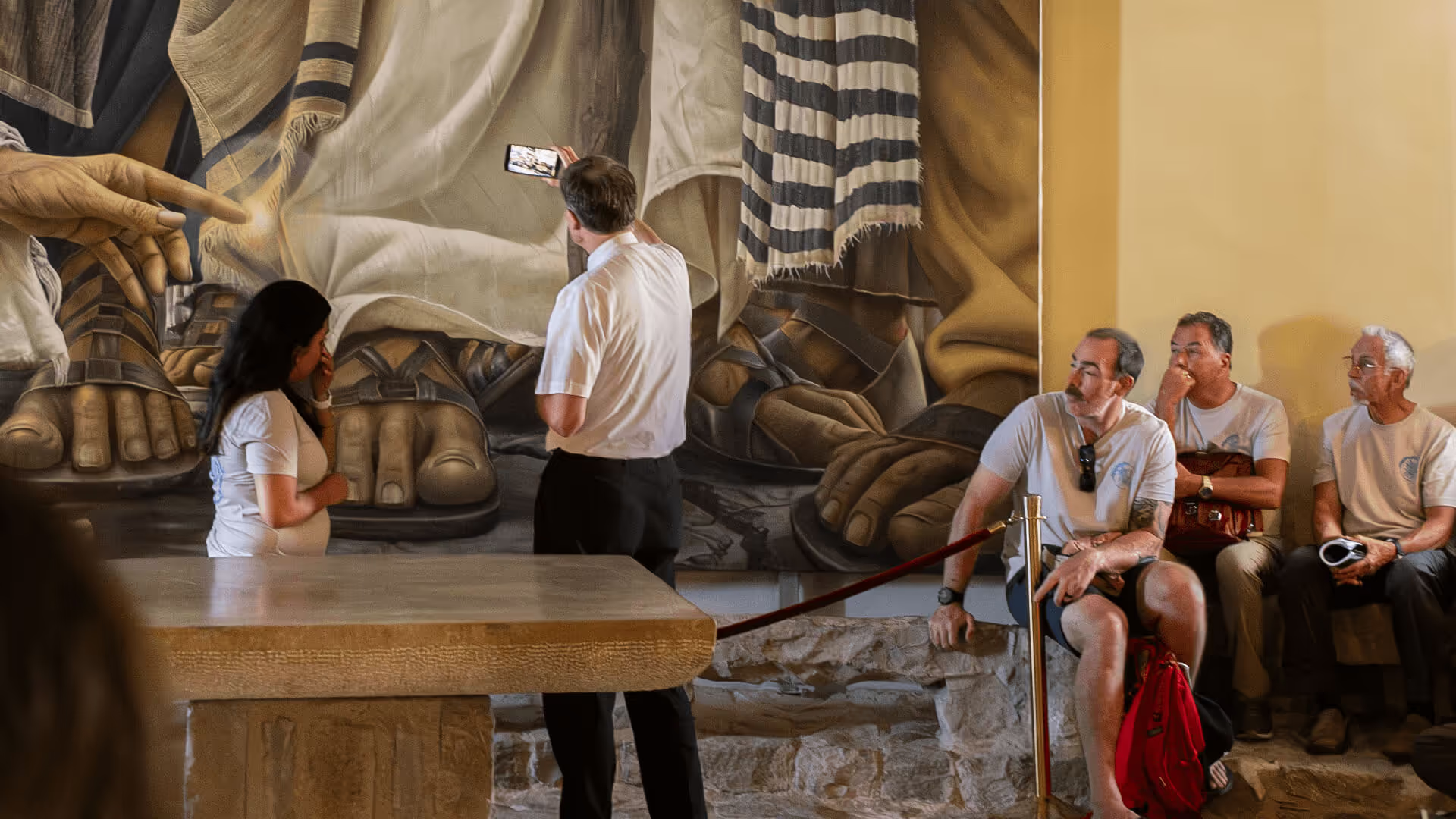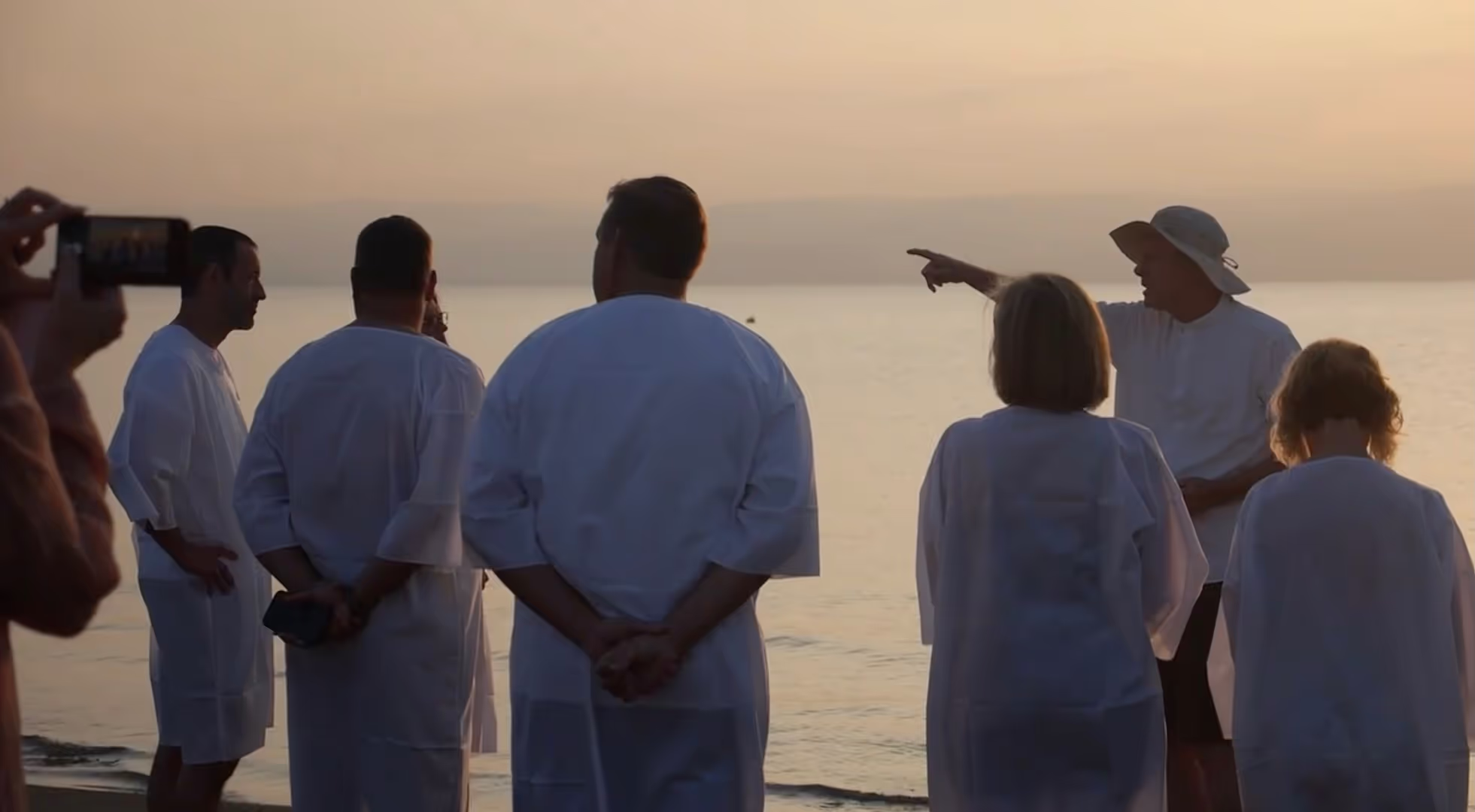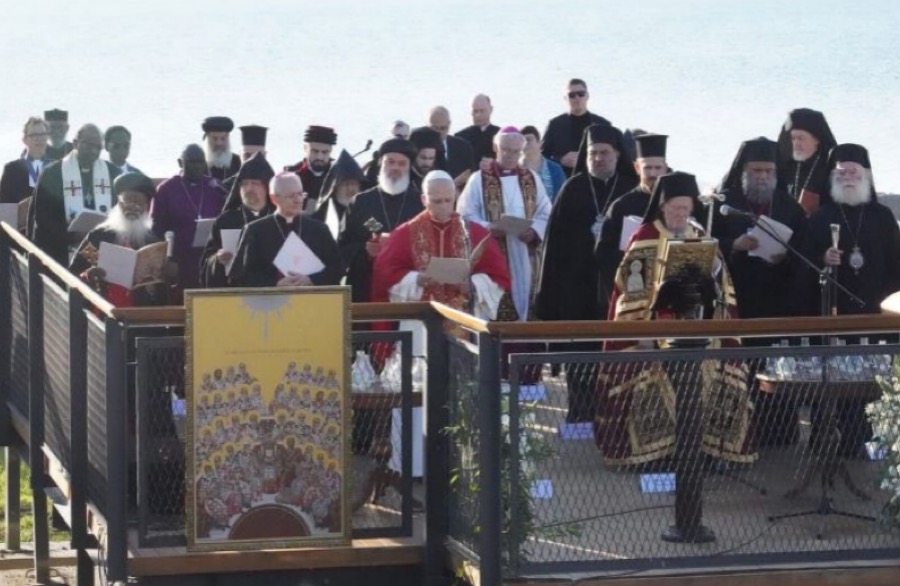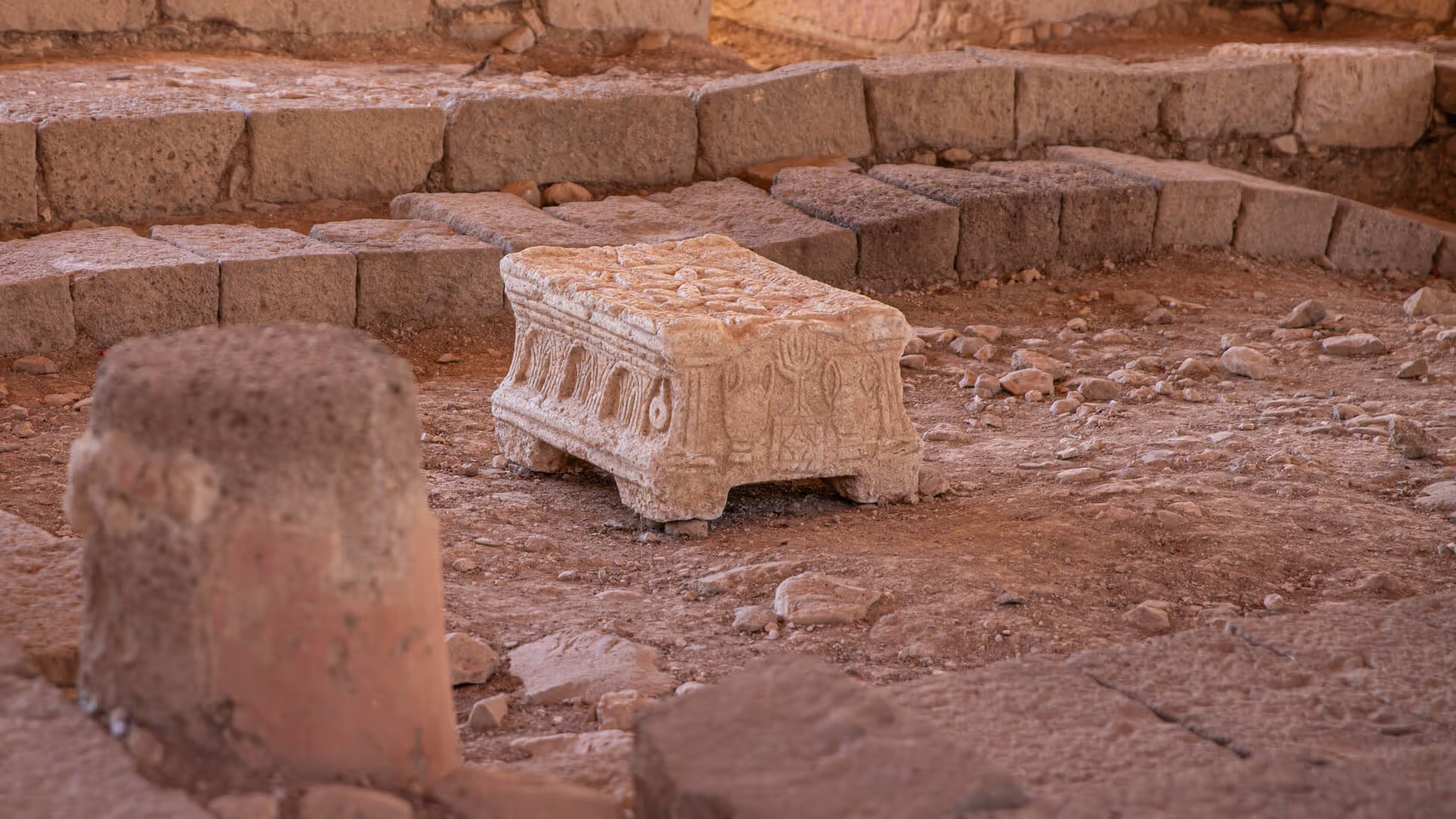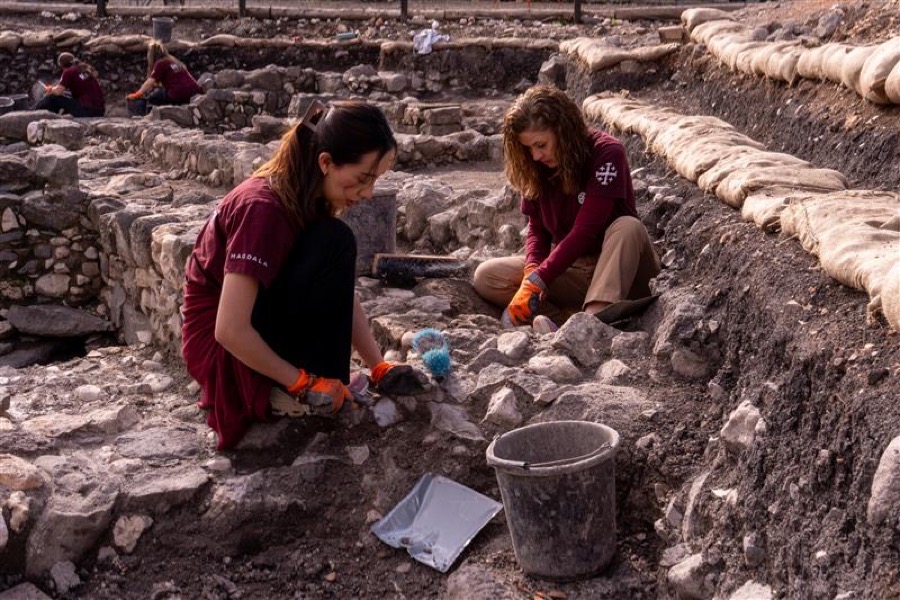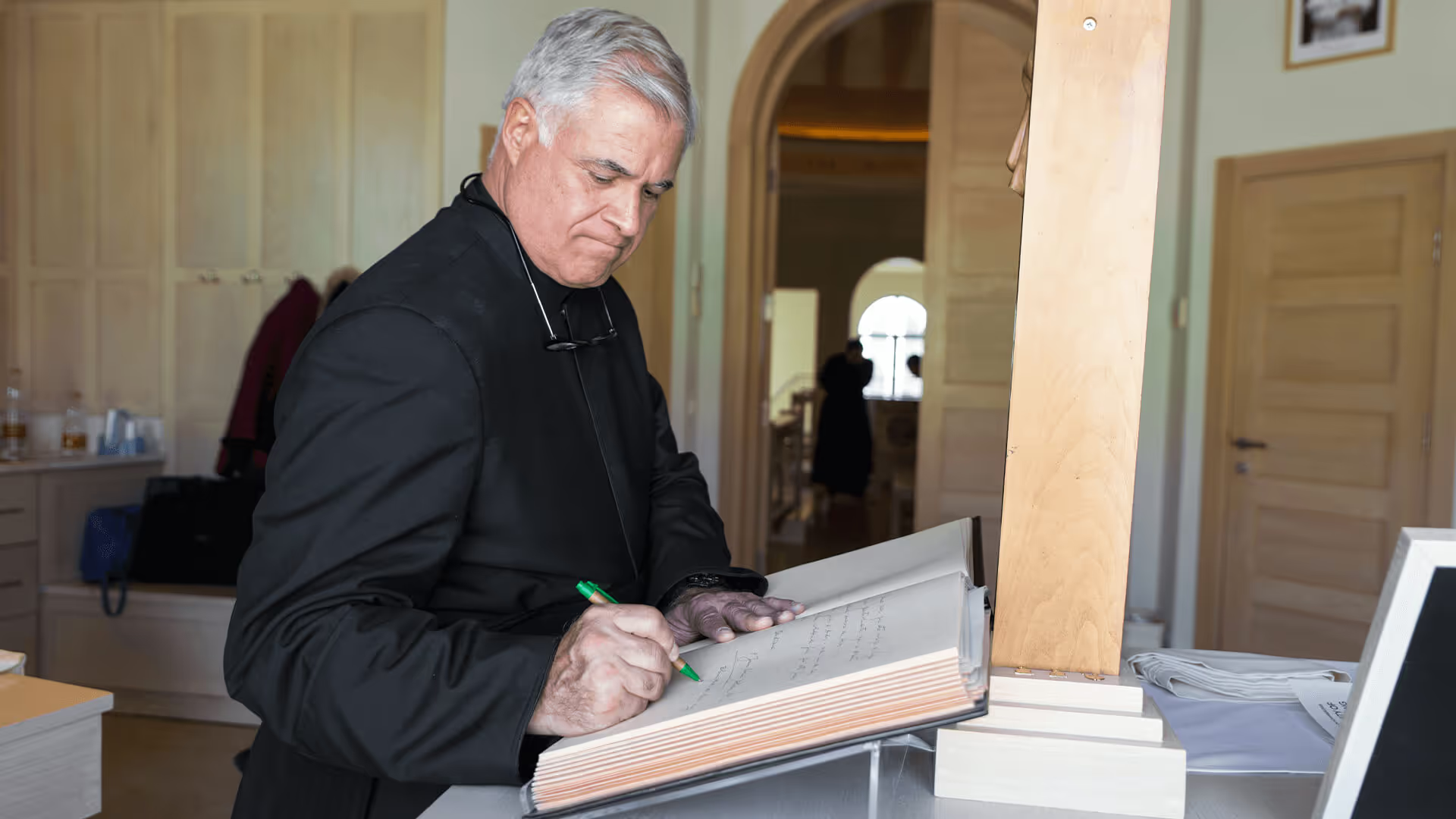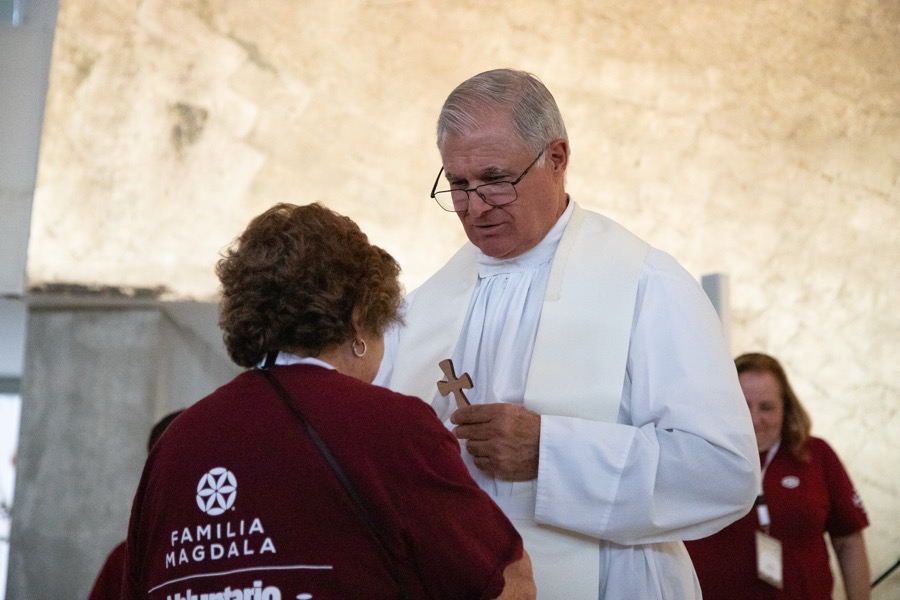Yesterday, the Haifa Laboratory for Religious Studies (HLRS) visited Magdala again. I introduced them in my September 2024 Magdala Journal article "Bringing Out What We Share". HLRS, in collaboration with leaders of various religious communities in Haifa, exemplifies a deep commitment to fostering coexistence in a diverse society. It was moving to host Druze, Jewish, Muslim, and Christian leaders as they visited sacred sites around the Sea of Galilee—a powerful symbol of mutual respect and understanding.
Between Crisis and Opportunity
We live in an era shaped by both inherited and ongoing divisions. While we may feel peace in our own surroundings, the world is riddled with conflicts—some estimate over 120 active wars globally. Beyond open conflict, rhetoric across political, cultural, and religious lines is growing hostile, often demonizing entire peoples. War and division require such demonization to persist.
True Discipleship vs. Labels
In this environment, are we truly becoming disciples, or just calling ourselves Christian? Spiritual growth requires daily renewal. Facing “the other” often demands courage. But faith can help us see the divine in those who are different or even adversarial. When hope and love are genuine, they open the way to healing even the most fractured relationships. We often hold attitudes in need of Gospel light. Our reactions to evil can either deepen division or reflect the light of Christ. Love leads through patience, kindness, and perseverance.
Complexity vs. Caricature
Society is far more complex than the polarizations often portrayed. Even amid war, people of opposing nationalities or backgrounds—like Ukrainians and Russians in Galilee—often continue to live and work together peacefully. These real-life connections are signs of hope, suggesting that humanity has built-in tools for reconciliation.
Each person plays a role. Some lead, others mediate quietly. Not everyone must protest; contributions take many forms—from teaching and writing to silent acts of love and service. Let’s stop pressuring everyone to play the same role. Healing society requires this diversity of gifts.
Transformation Starts Within
We each need interior transformation toward goodness and kindness. It takes effort to engage across difference, but thriving humanity, like a healthy family, makes space for all. Avoiding difficult members may be easier, but it leads to dysfunction. Relationships across divides may be tiring—but are essential.
Last week, I watched a rich dialogue between Rabbi Meir Soloveichik and Bishop Robert Barron (video here). Contrary to earlier hesitations about theological dialogue between Jews and Christians—such as those expressed by Rabbi Joseph B. Soloveitchik in Confrontation—this conversation showed that respectful theological engagement is not only possible but fruitful.
The First Victim of War: Truth
War not only destroys lives but also relationships. Polarized loyalty demands that people denounce the other side—or risk accusations of betrayal. But life is far more nuanced. Maintaining contact across lines of conflict is not treachery; it can be a path to healing. Oversimplifying people or societies strips them of their full humanity.
Detox Our Dialogue
Social media can entrench echo chambers, feeding only familiar viewpoints. But true growth comes from hearing, not caricaturing, opposing views. Are we entering conversations to condemn or to understand? Are we genuinely seeking reconciliation or reinforcing division? We must detox our hearts first—then our speech. Dialogue should leave us better friends, not deeper enemies.
Let’s commit to spaces where all are welcome, where differences are engaged with grace, and where our shared humanity shines brighter than our divisions.
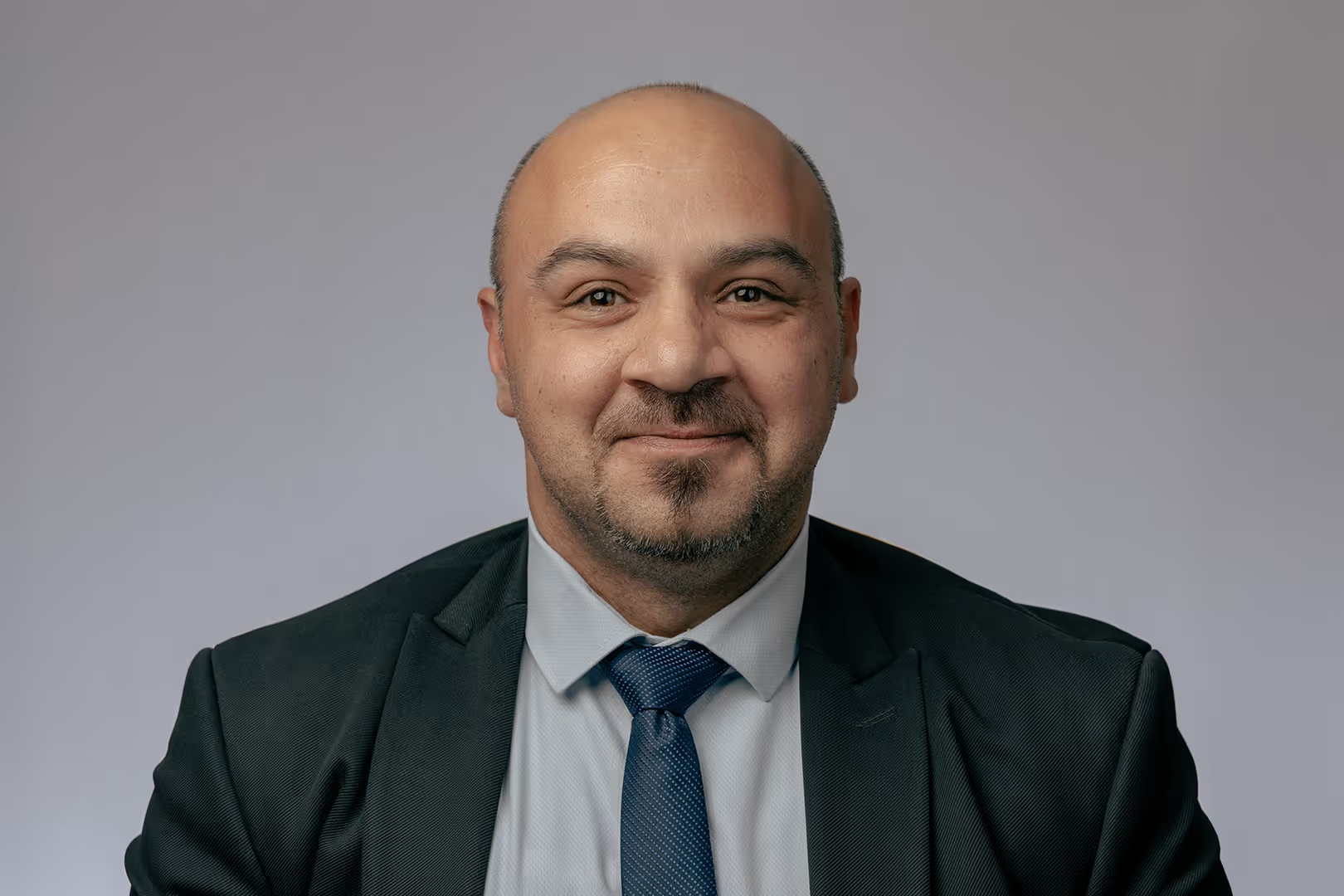
Fadi Shehadi, Front Office Manager
Born and raised in the nearby village of Maghar, Fadi grew up as the middle child between two sisters in a Catholic family. His father managed waitstaff for a major hotel chain before launching a home renovation business, where Fadi often helped during school vacations—an early introduction to the value of hard physical work and responsibility.
After graduating high school in 2004, Fadi began his career as a guide for local Israelis, focusing on the Golan and Carmel Heights. His work emphasized ecological and environmental education, especially for youth, and included mentoring students from difficult family backgrounds—experiences that helped him develop empathy and a flexible, case-by-case approach to helping others.
Fadi also trained in First Aid, became a certified ambulance driver, and has volunteered in that role for over a decade. His professional path then led him to Hamat Gader hot springs, where he spent four years serving first as Head Medic and later as Reception Manager. His leadership extended to food service as well, managing operations across five fast-food restaurants.
Eventually, Fadi felt called to transition from domestic tourism to serving international visitors and pilgrims. Encouraged by a Druze friend and supported by a Jewish colleague, he accepted a role at Magdala—where he found something different.
“Magdala is unique. You feel it the moment you arrive. There's a sense of belonging to something that genuinely touches people’s lives. Every day brings innovation—in the guests we meet, in the way we serve, and in the culture we’re creating. It's deeply satisfying to work with people from around the world.”
Discover more articles from this category
